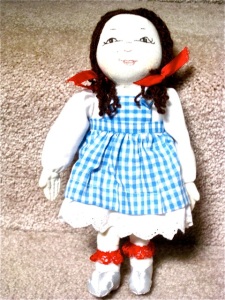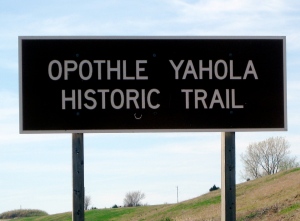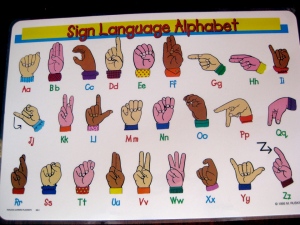
Tiger lilies growing wild.
(All photos by Marylin Warner)

Taking a fresh air break with Mom.
Dear Mom,
Remember how much time I used to spend getting ready for camp or packing for a family trip to visit Dad’s family in California? You paired off socks, matched outfits, and ID-ed everything with my initials. I packed and repacked books, games, art projects, camera and film, notebooks and pens, and packages of red licorice rope candy.
Now when I drive from Colorado to Kansas to visit you, it’s simpler. I make sure my Kindle and digital camera are charged, pack only the things I know I’ll need, and start driving. I have several favorite places along the way where I can pick up meals and tempting desserts that are much, much better than licorice ropes.
There are also other things I do to prepare before I arrive at your door. Maybe some of these will help other caregivers and frequent visitors of parents with Alzheimer’s or dementia, and maybe they’ll share ideas to add to my list.
Here are my five basic preparations for a successful visit:
Decide in advance that laughter will be the go-to response in tense situations. Not laughter at the person, but at the situation. Things happen, messes need to be cleaned up–sometimes again and again–stress can be high. But if my response is to laugh and say, “Oh, this reminds me of when I was a kid. Remember the time when I…?” it’s surprising how the mood lifts and we enjoy each other’s company.
Chew gum. I once read an article about hundreds of gum chewers and non-gum chewers who were studied for stress. Those who chewed gum while doing repetitive jobs–without choking or dropping gum on the assembly line, of course–showed significantly less stress. You no longer chew gum, Mom, but I do when I’m with you…sugarless bubble gum. It’s harder to blow bubbles, but I remember once when I blew a huge bubble. You looked over, smiled and reached out. I leaned forward and you had great fun popping the bubble with your finger. In that moment you were involved and entertained, and we shared the added bonus of laughter.
Improve the environment. We have several green plants growing by your front window, Mom, but nothing perks up the feeling of your living room like fresh flowers. You were once an avid vegetable gardener, but you also grew lilies, lilacs, roses, daisies and many varieties of flowering bushes. Now, whenever I bring a bouquet of garden flowers or a blooming plant from the grocery store, you brighten up and respond to the colors and scents. Once I brought a gingerbread mix that could be baked in the microwave, and you enjoyed the smell of warm gingerbread as much as the taste. Microwave popcorn’s popping sound and buttery scent make you smile every time.
Be prepared TO DO something. Since I spend the night each time I visit you, we have extra time, so I arrive with several things we can do. We paint your fingernails, sometimes alternating colors; I wrap up a pair of brightly patterned socks for you to enjoy twice… once when you unwrap the package, and then again when I put the socks on your feet; I bring several colorful postcards, and you can decide who will receive them and what you want me to write on each card. The activities aren’t costly or complicated, just a fun diversion.
Walk…several times. Caregivers who are able to take frequent walks do better and have less stress. When I’m with you, Mom, I am your caregiver, so you and I take our walks together. You have a walker, but I’m glad we kept Dad’s old wheelchair. On nice days I take you outside to see the flowers or feed the ducks. On not-so-nice days we stay inside and make an adventure of rolling along the hallways, greeting people we see, stopping at the bookshelves loaded with books to borrow, or enjoying the framed pictures throughout the facility. We keep moving for as long as we can, and that helps.
______________________________________________
Louis Pasteur wrote: “Chance favours the prepared mind.”
Shakespeare wrote: “All things are ready, if our minds be so.”
And the motto of the Boys Scouts of America is “BE PREPARED.”
In dealing with loved ones who have Alzheimer’s or dementia, we can do only the best we can do at any given moment. Some of my best plans fail miserably, while others succeed amazingly, but only for one visit. If any of these suggestions help you, I’m glad. If you’ll share your ideas with me, I’d be ever so grateful.
























